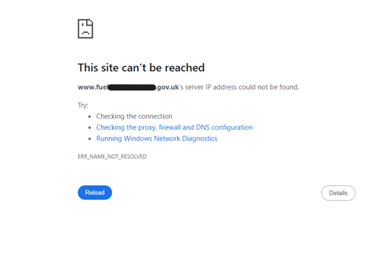From time to time we have pointed out that those of you running your businesses as directors of limited companies have certain legal obligations that are more onerous than those that would apply to sole traders and partnerships. Perhaps nowhere does this become more important than in the event of insolvent trading. In the context of company law insolvency means that a situation has arisen whereby a company has reached a point where it is no longer able to pay its bills.
In many cases the most obvious cause is that the business has been trading at a loss for some time, supported only by the credit it has received from it’s trade suppliers or bank. Such credit cannot continue forever. Unfortunately in many instances the first time management are forced to wake up to the problem is when it is too late to do much about it – such as the bank refusing to allow a direct debit payment.
In reality, the warning signs should have been seen long before that stage. Perhaps there were delays paying the VAT, or the PAYE; maybe it was the occasional phone call from the bank asking whether there would be a cash deposit within the next few days because the account was too close to its limit and they knew that there was already another large payment in the system. While those are all practical warnings, when it comes to the crunch, the directors will be expected to have been aware of the problems before that stage. They are expected to have timely and accurate management accounting information, internally reviewed by the directors to ensure that they do not knowingly continue to increase the company’s liabilities to it’s creditors beyond the point that it can pay those creditors.
When a company finds itself in serious financial difficulty, the directors are faced with two key questions:
- When did your internal management information tell you that your company was insolvent?
- What did you do with that information?
Those questions are meant to establish whether the directors are personally liable for ‘wrongful trading’ – that is continuing trading in the knowledge that the business could not pay its bills. Ignorance is not a valid excuse. So how do you avoid the second hassle, even if you couldn’t avoid the first? The answer is to act honestly and record what you and your fellow directors do:
- Use real, prudent figures when preparing your internal accounts. For example, don’t include stock that you haven’t still got or which is out of date or damaged, and make sure that you include all your supplier invoices when calculating your liabilities.
- If the accounts suggest that you have been losing money – perhaps paying yourself a salary or bonus that the company hasn’t made enough money to cover – or are already in a position where paying the bills is about to become a problem, stop. At this point you need to make a careful and serious decision as to whether you continue trading or whether you need to call in expert insolvency advice.
The decision as to whether you continue trading is the most important one you have to make. You and your fellow directors will need to formally review all information and keep a record of your discussions and decisions. You will need to have accurate and up-to-date accounting information at each meeting because you may urgently need to prepare a cash flow forecast before making the decision to continue trading. If the viability of the business looks doubtful, you will need to obtain expert advice. Insolvency practitioners – experts in dealing with insolvent companies – have to be licensed by the DTI and their professional bodies in order to practice. Most reputable accountants and solicitors will be able to provide you with the name of a licensed insolvency practitioner.
Insolvent companies face a number of possible outcomes, either as a survival strategy (Administration or a Company Voluntary Arrangement), or as a final winding-up (Receivership, Liquidation), depending on the financial state of the company and, to a large extent, the attitude of its creditors.
While everyone wishes success to small businesses, it is a sad fact of life that every year thousands of them go under. Acting prudently and facing that reality may just make the process a little bit less painful.



























No comments yet